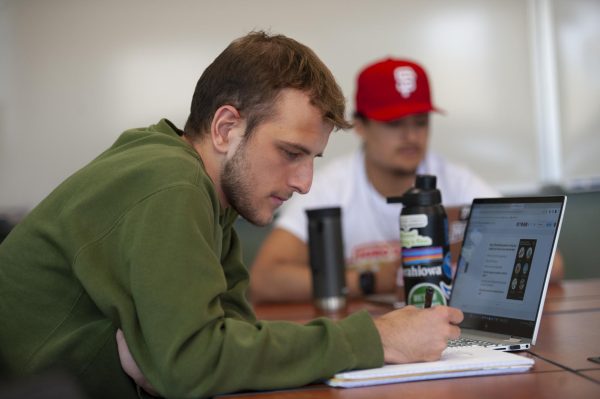Normalize talking to your friends about substance abuse
It’s a tale as old as time. A first-year arrives on campus; they’ve never drank before. They get drunk for the first time; they love it. It gives them a feeling of freedom, of confidence. It makes it easier to talk to people, easier to relate to them, easier to have a good time. And it’s always a good way to hang out with people. Before long, every time they hang out with people, they’re having a couple drinks. And before long, they start relying on drinking. It gives them a feeling of freedom they don’t have when sober, a confidence they don’t have without a drink in their hand. Soon enough, they’re binge drinking every night. This certainly isn’t a universal tale, but most of us know at least one person that has always seemed a little too dependent on drinking. It’s time for us to look at this pattern of behavior and identify it for what it is: substance abuse.
Substance abuse can take many forms, but in college it’s most commonly associated with alcoholism. Some common warning signs of alcoholism include: being unable to control alcohol consumption, craving alcohol when you’re not drinking, putting alcohol above personal responsibilities, feeling the need to keep drinking more, spending a substantial amount of money on alcohol, and behaving differently after drinking. Think carefully: do you or any of your friends exhibit these warning signs? I’m betting they do, dear reader, because, unfortunately, these behaviors are very common in college.
Substance abuse is normalized in American colleges to an extreme extent. My freshman year, there wasn’t a weekend where someone on my floor didn’t throw up in the bathroom or shower from drinking too much (I’d like to take this moment to apologize to the right-hand sink in the bathroom on the third floor of Ylvisaker). This is anecdotal, but I’m guessing most Luther students know someone who has thrown up from drinking alcohol, if they haven’t themselves. It’s quite common to hear stories about people doing crazy things while super drunk. Those experiences are worn almost as a badge of honor: the more extreme the better! In short, these behaviors are seen as a normal part of the college experience. Yet, quite simply, they are not normal. Binge drinking every weekend, or even more frequently, negatively affects the body in many quantifiable ways. It also opens the door to developing alcoholism.
This all brings me to my point: we need to identify substance abuse when it occurs among our friends and we need to normalize talking about the fact that many “normal” drinking behaviors at college are signs of alcoholism. It could be things that may seem normal, like getting blackout drunk after a breakup, that might indicate your friend needs help. It could be that they drink before class to wake up, or even drink during in-person class when the teacher leaves the room. They might even get blackout drunk five nights a week. Whatever the behavior is, please recognize the signs in your friends. Normalize talking to them about these issues. If they need help, utilize resources on campus. But above all, talk to them about their behaviors. As they say, the first step in solving a problem is admitting you have one.
Opinions expressed in columns and letters are those of the author(s) and do not necessarily reflect the opinions of Chips or organizations with which the author(s) are associated.





